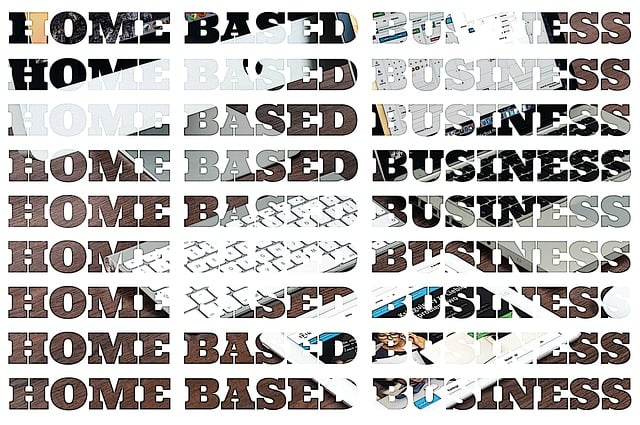Running a home-based business requires specialized insurance to cover distinct risks like hazardous materials, online transactions, and structural vulnerabilities. Key policies include general liability, professional liability, property insurance, and business interruption coverage. Home-based business owners should carefully evaluate their operations, compare policies, and understand exclusions to ensure adequate protection. Bundling policies, annual reviews, and negotiating rates can reduce costs. Tailored Insurance Policies for Home-Based Businesses offer comprehensive coverage, peace of mind, and continuity during unforeseen events, fostering growth and security in a competitive market.
Running a home-based business comes with unique risks that traditional office spaces might overlook. From accidents at your workspace to data breaches, understanding these hazards is key to making informed decisions about insurance coverage. This article explores various insurance policies for home-based businesses, breaking down complex options into affordable solutions. Learn how to navigate exclusions and negotiate rates while securing peace of mind with the right protection. Discover real-world case studies and expert tips to safeguard your venture effectively.
Understanding the Unique Risks of Home-Based Businesses

Running a home-based business presents unique challenges and risks that are often overlooked by traditional insurance policies. These businesses, while offering flexibility and convenience, can expose entrepreneurs to different hazards not typically found in a standard office or retail setting. For instance, home-based businesses may involve handling hazardous materials, sensitive customer data, or even specific equipment that could lead to unforeseen accidents or liability claims.
Home offices might lack the structural integrity of commercial buildings, increasing the risk of injuries from falling objects or structural failures during operations. Additionally, insurance policies for home-based businesses must consider potential risks associated with client visits, delivery services, or online transactions. Understanding these unique factors is essential when selecting appropriate coverage to safeguard against unforeseen events and protect the financial well-being of home-based entrepreneurs.
Types of Insurance Policies Available for Home Offices

When it comes to insuring your home-based business, several types of policies are designed to cover specific risks and needs. These include general liability insurance, which protects against accidents and injuries on your property, as well as professional liability or errors and omissions coverage for businesses that offer services. Property insurance is also essential, covering your home office space, equipment, inventory, and valuable items from damage or theft.
Business owners should consider the nature of their operations when choosing an insurance plan. For instance, if you have a high-value inventory or use specialized equipment, tailored policies can ensure these assets are protected. Additionally, business interruption coverage is worth considering, as it provides financial protection during unexpected events that halt your operations, such as natural disasters or health crises.
Cost-Effective Options for Small Business Owners

For small business owners operating out of their homes, managing finances is a delicate balance. The good news is that there are numerous cost-effective options when it comes to insurance policies for home-based businesses. These policies are tailored to protect against risks specific to running a business from your residence, without breaking the bank.
By opting for specialized home-based business insurance, entrepreneurs can gain peace of mind knowing their investment and liability are covered. These affordable plans often include protections against property damage, general liability for customer injuries, and even coverage for business equipment and inventory. With such comprehensive yet budget-friendly options available, small business owners can focus on growth and success while ensuring they’re adequately protected.
How to Choose the Right Coverage for Your Needs

Selecting the appropriate insurance coverage is a crucial step in safeguarding your home-based business against potential risks and financial burdens. As these businesses operate uniquely within the comfort of homes, tailored insurance policies are essential to mitigate specific hazards. Start by assessing the nature of your work; whether it involves client interactions, product creation, or data management, each requires distinct coverage considerations. For instance, if you offer services in a residential setting, professional liability insurance can protect you against negligence claims. Conversely, if your business involves storing and shipping goods, comprehensive general liability and property insurance should be prioritized to cover potential damages or losses.
Researching and comparing different insurance policies is paramount. Review policy provisions, coverage limits, deductibles, and exclusions carefully. Understand what is included in each policy and how it aligns with your business needs. Don’t hesitate to seek clarification from insurance providers; they can offer valuable insights into areas of concern specific to home-based businesses. Additionally, consider the reputation and financial stability of insurers to ensure claims are settled promptly if needed.
Common Exclusions and What They Mean

When considering insurance policies for home-based businesses, it’s crucial to understand common exclusions that may be present in these policies. Exclusions are specific events or circumstances that are not covered by your insurance and can leave gaps in protection. For instance, many standard policies exclude damage caused by floods, earthquakes, or war. Home-based business owners should also be aware of clauses related to business interruption, which might not cover loss of income if a covered event forces your operation to close temporarily.
These exclusions vary across different insurance providers and policy types, so it’s essential to read the fine print carefully. Understanding what’s excluded can help you make informed decisions when selecting an insurance plan that aligns with your home-based business needs. By knowing these potential gaps, you can also take proactive steps to mitigate risks or seek additional coverage for specific concerns.
Tips for Negotiating Better Rates on Home Business Insurance

Negotiating better rates on insurance policies for home-based businesses can help reduce costs significantly. One effective strategy is to bundle your business and personal policies together, as many insurers offer discounts for combining coverage. Additionally, review your policy annually and compare rates from different providers. Changes in your business operations or location might warrant an update in your coverage, but don’t forget to check if new quotes can be secured.
Being proactive and understanding your needs will also aid in the negotiation process. Identify specific risks associated with your home-based business and tailor your policy accordingly. For instance, if you have a high-value inventory or equipment, ensure that these are adequately covered. Demonstrating that you’ve taken steps to mitigate potential risks can make insurers more amenable to offering competitive rates.
Case Studies: Successful Claims Handling in Home-Based Businesses

In the realm of insurance for home-based businesses, successful claims handling is a testament to the efficacy of tailored coverage. Case studies reveal that many home-based businesses have benefited from specialized Insurance Policies for Home-Based Businesses. For instance, a graphic designer operating out of their home studio experienced a burst pipe, leading to significant water damage. Their comprehensive insurance policy, designed for such scenarios, swiftly covered the cost of repairs and replacement, minimizing downtime and financial strain. This exemplifies how well-structured insurance can protect entrepreneurs from unexpected events, ensuring they can continue their operations with minimal disruption.
Another example involves a virtual assistant who faced data breach issues due to a hacking attempt. Their cyber liability coverage under their Insurance Policies for Home-Based Businesses stepped in, providing funds for incident response, credit monitoring services, and legal support. This swift response not only mitigated potential business losses but also instilled confidence in clients regarding data security. These scenarios underscore the critical role insurance plays in safeguarding home-based businesses from a wide array of risks, fostering their growth and longevity in today’s competitive market.
Conclusion: Securing Peace of Mind with Affordable Insurance

For many home-based business owners, finding accessible and affordable insurance policies is a top priority. These entrepreneurs often face unique challenges when it comes to protection due to their work setup, but there are options available that can provide peace of mind. By considering tailored insurance plans, they can safeguard their businesses, employees (if any), and personal assets effectively.
Affordable insurance for home-based businesses means accessing coverage that meets specific needs without straining finances. It’s not just about protecting physical locations; it involves insuring valuable equipment, intellectual property, liability risks, and even providing support during unforeseen events. With the right policies in place, business owners can focus on growth and success while knowing their venture is secure.
